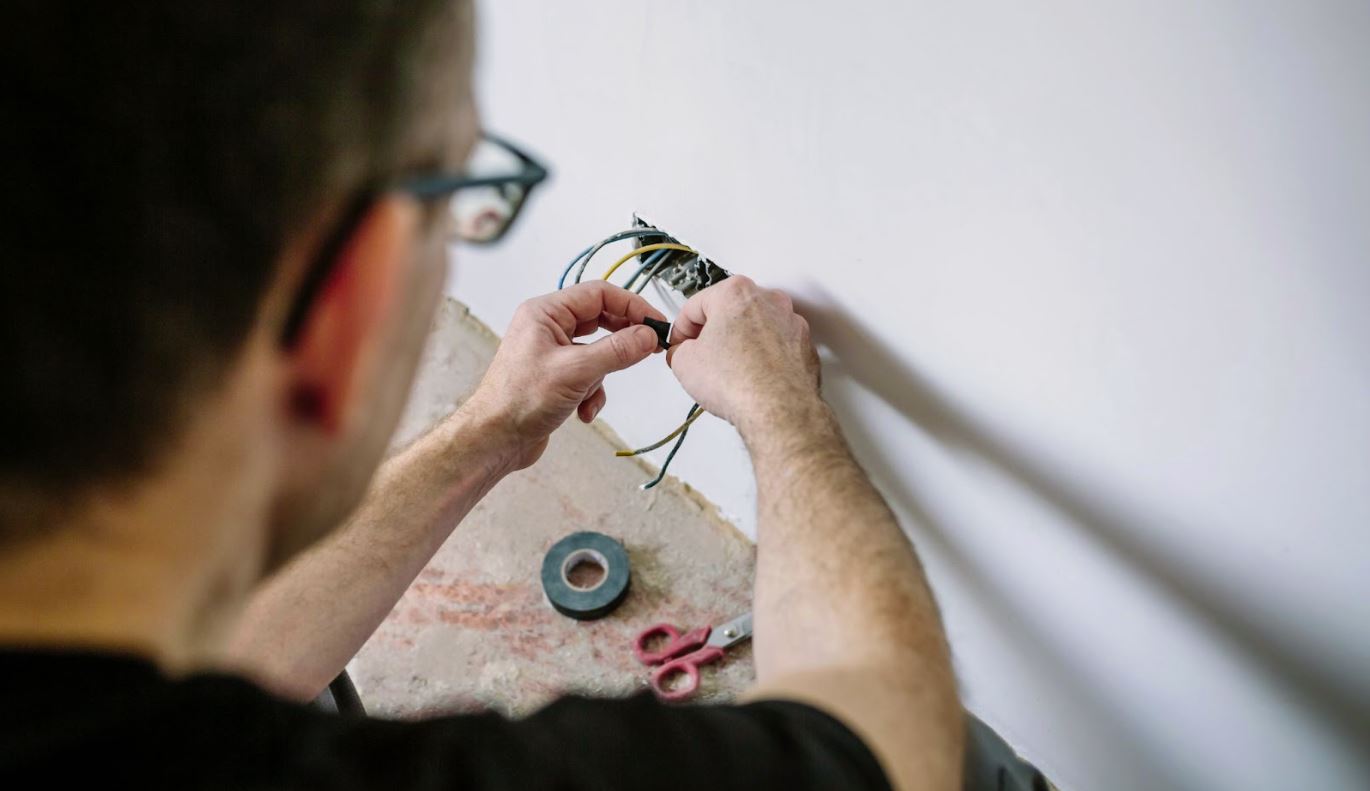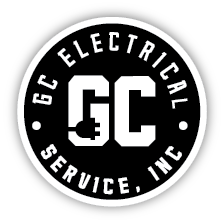Your home's electrical system is more than just the wires hidden behind walls—it's the lifeblood that keeps everything running smoothly. Every modern convenience depends on a safe, functional, and reliable system, from lights to appliances. Yet, with growing power demands and the increased use of technology, many electrical systems are under strain, especially in older homes. Homeowners often face a tough decision: should they repair ongoing issues, or is it time to rewire the entire system? Making the right choice can mean peace of mind and significant safety risks.
Signs Your Electrical System Needs Attention
Electrical systems rarely fail without warning. Often, they show clear signs when something isn't right. Attention to these warning signs can help prevent minor electrical issues from becoming dangerous or expensive problems.
Frequent Circuit Breaker Trips
Circuit breakers protect your home from electrical overloads. When they trip frequently, it's more than just an annoyance—it's a sign that your electrical system might struggle to keep up. Consistent breaker trips suggest overloaded circuits or wiring problems that need attention. Ignoring this sign could lead to more significant issues, such as fires or equipment damage.
Flickering Lights
While flickering lights can sometimes be blamed on faulty bulbs, it's often a sign of something more serious. If you notice your lights dimming or flashing, mainly when you use multiple appliances at once, it could point to an overloaded circuit or deteriorating wiring. This minor inconvenience could grow into a safety hazard if left unaddressed.
Burning Smell or Sparks
A burning smell near outlets or seeing sparks when plugging in appliances should never be ignored. These are clear indications of faulty wiring, which poses an immediate fire risk. If you ever notice these signs, turn off the power immediately and call a professional to assess the situation.
Factors to Consider in Rewiring or Repair
Deciding between repairing and rewiring depends on several factors, including the age of your system, repair costs, and safety concerns. Each home is different, and what works for one might not be the best solution for another.
Age of the Electrical System
Electrical systems in homes older than 30 may need to meet today's safety standards or handle modern electrical demands. Older homes often have outdated materials, such as aluminum wiring, that can degrade over time. If your home's wiring is over three decades old, rewiring might be better than continually patching up problems.
Cost of Repairs vs. Rewiring
Repairing electrical problems can initially seem cheaper. However, frequent repairs can add up over time. Investing in a full rewire might be more economical if you constantly pay for fixes. Though rewiring has a higher upfront cost, it can save money in the long run by eliminating the need for constant repairs.
Safety Concerns
Electrical systems that frequently malfunction or use outdated materials are a safety hazard. Frayed wires, broken outlets, or circuits that can't handle modern power loads increase the fire risk. Rewiring your home ensures your electrical system is up to code and safe for everyday use.
Benefits of Rewiring Your Electrical System
If your electrical system is old, outdated, or causing frequent issues, rewiring can offer multiple benefits, both immediate and long-term. Although rewiring your home may be a significant investment, the benefits of safety, efficiency, and resale value make it worthwhile.
Increased Safety
The most significant benefit of rewiring is safety. Older electrical systems are often more prone to problems that could lead to fires, electric shocks, or short circuits. Rewiring brings your home up to modern safety standards, reducing the risk of electrical accidents.

Improved Efficiency
Modern wiring is better equipped to handle the demands of today's appliances and devices. Whether it's high-definition televisions, powerful kitchen gadgets, or home automation systems, new wiring can handle the load more efficiently, leading to fewer power outages or trips.
Higher Home Value
If you plan to sell your home, a rewired electrical system is a significant selling point. Many buyers are concerned about the condition of a home's electrical setup. A rewired home provides peace of mind, knowing the system is up to code and safe.
When Is a Simple Repair the Right Choice
Not every electrical issue requires a complete overhaul. Sometimes, a targeted electrical repair can solve the problem without extensive work. In the following situations, repairing rather than rewiring can save you time and money while ensuring your home's electrical safety.
Isolated Issues
A repair is needed if your electrical problems are limited to a single outlet, light fixture, or appliance. Isolated electrical issues are often more accessible and cheaper than systemic problems throughout the home.
Recent Upgrades
Homes with recent electrical upgrades, such as new wiring or panel replacements, may only need occasional repairs to maintain the system. If your electrical setup is relatively new, repairing minor issues as they arise can help extend its life without the need for a full rewire.
Minor Damage
Minor wear and tear, such as frayed wiring in a particular spot, can often be fixed without a full rewire. A professional can replace damaged wires or connections to restore your system's functionality.
Types of Electrical Upgrades to Consider
If you're considering rewiring or repairing your home's electrical system, consider other upgrades to enhance its safety and functionality. These upgrades improve the performance of your electrical system and ensure a safer, more efficient home.
Panel Upgrades
An outdated electrical panel can limit your system's capacity, causing frequent breaker trips or limiting your ability to use modern appliances. Upgrading the panel increases your home's power capacity, allowing you to add new appliances or expand your electrical load safely.
Ground Fault Circuit Interrupters (GFCIs)
GFCIs are essential in areas of your home where water and electricity are nearby, such as bathrooms, kitchens, and outdoor outlets. Installing GFCIs can prevent electrical shock by cutting off power when a fault is detected.
Surge Protectors
Installing whole-house surge protectors can safeguard your home's electronics from power surges caused by lightning or power fluctuations. This upgrade is significant if you live in an area prone to storms or have sensitive electronics.

Choosing the Right Professional for Your Electrical Work
Hiring a qualified professional ensures the job gets done right and gives you peace of mind that your home is safe. Here's what to look for when hiring an electrician:
Check Credentials and Licensing
Always verify that your electrician is licensed and certified to perform electrical work in your area. Licensed professionals ensure your electrical system meets all safety standards and building codes.
Ask for References
A reputable electrician should be okay with providing references from previous clients. Checking these references can give you confidence in their ability to do the job right.
Get a Detailed Estimate
Before any work begins, ask for a detailed estimate that breaks down the cost of labor, parts, and other associated fees. It will prevent surprises and ensure that you stay within your budget.
How to Plan for Electrical Upgrades
Planning for electrical upgrades can seem daunting, but you can ensure a smooth process with the right approach. Here's how you can effectively plan for electrical upgrades to your home:
Assess Your Needs
Before you begin, determine precisely what needs upgrading. Then, evaluate your current electrical system. Are you facing frequent circuit breaker trips, flickering lights, or other issues that could indicate an overload or faulty wiring? Or are you simply looking to add new appliances or upgrade old ones that demand more power? Pinpointing the exact scope of your needs will help guide the rest of your planning process.
Set a Budget
Electrical upgrades can vary significantly in cost depending on the scope of the work. Minor repairs cost a few hundred dollars, while an entire home could range from $2,000 to $10,000 or more, depending on your home's size and the wiring's complexity. Research the typical costs for the type of upgrade you're considering and get multiple estimates from licensed electricians to ensure you're budgeting accurately.
Schedule an Electrical Inspection
Before proceeding with any major electrical upgrade, it's essential to have your home inspected by a qualified electrician. A thorough inspection will provide a clear picture of your system's current state and reveal any underlying issues that may require attention. Based on the inspection results, an electrician can also recommend whether a repair, panel upgrade, or complete rewiring is necessary.
Plan for Disruption
Electrical work can be disruptive, especially for larger projects like rewiring. Be prepared for power outages and limited access to certain areas of your home while the work is being done. Depending on the project's scope, you may need to relocate temporarily. Plan for how this will affect your day-to-day life and make accommodations accordingly.
Obtain Necessary Permits and Schedule Inspections
Most electrical upgrades require permits to ensure the work complies with local building codes. Working without a license could result in fines, and the work may need to be redone to meet safety regulations. Once the upgrade is complete, a follow-up inspection by a building authority is usually required to confirm that the work was done safely and up to code.
Consider Energy-Efficiency Upgrades
Planning electrical upgrades is a perfect time to consider improvements that can increase your home's energy efficiency. Installing LED lighting, adding smart thermostats, or upgrading appliances to energy-efficient models are all small steps that can significantly affect your monthly energy bills. If you're rewiring your home, consider adding circuits for renewable energy sources like solar panels.
Hire the Right Electrician
Once you've planned your upgrade, hiring a qualified electrician to handle the work is crucial. Don't be tempted to choose the cheapest option; ensure your electrician is licensed, experienced, and well-reviewed. Take the time to gather multiple quotes and ask questions to determine the electrician's qualifications and experience with the type of work you need.
Ensuring Electrical Safety and Long-Term System Reliability
Your home's electrical system isn't just about powering appliances; it's about ensuring the safety and comfort of everyone inside. By addressing issues early and upgrading when necessary, you protect your home from potential hazards and costly repairs down the line. Don't wait for minor problems to escalate; take the necessary steps now to keep your system reliable, efficient, and safe for years.
Visit our GC Electrical Service Inc. blog for in-depth tips on keeping your home safe and efficient.


